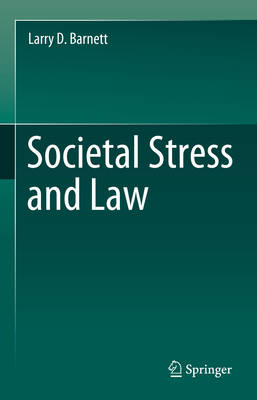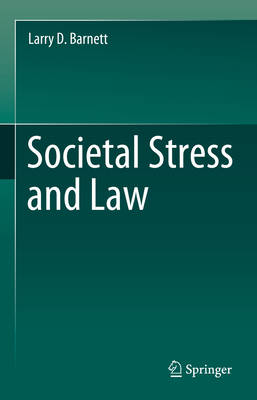
- Retrait gratuit dans votre magasin Club
- 7.000.000 titres dans notre catalogue
- Payer en toute sécurité
- Toujours un magasin près de chez vous
- Retrait gratuit dans votre magasin Club
- 7.000.0000 titres dans notre catalogue
- Payer en toute sécurité
- Toujours un magasin près de chez vous
Description
Societal Stress and Law draws attention to the social side effects of law by developing the sociological concept of society-level stress, a corollary of the concept of individual-level stress in the biological sciences. To encourage interest in societal stress, the book looks at (1) instances of law adopted by American states that the U.S. Supreme Court held unconstitutional and (2) actions by American states with regard to a proposal to amend the federal Constitution. The Court rulings and the proposed constitutional amendment were capable of producing societal stress because they were seen by a sizeable segment of the U.S. public as being incompatible with significant American traditions. In original studies that apply logistic regression to state-level statistical data, the book identifies sociological variables that predict state differences in the adoption of this law and state differences in actions on the proposed constitutional amendment. Because these variables represent societal agents that affected whether a state experienced social stress from the rulings and proposal, the book blends theory with empirical research and illustrates how each can support the other in law-focused scholarship.
Spécifications
Parties prenantes
- Auteur(s) :
- Editeur:
Contenu
- Nombre de pages :
- 200
- Langue:
- Anglais
Caractéristiques
- EAN:
- 9783031308741
- Date de parution :
- 15-06-23
- Format:
- Livre relié
- Format numérique:
- Genaaid
- Dimensions :
- 156 mm x 234 mm
- Poids :
- 485 g

Les avis
Nous publions uniquement les avis qui respectent les conditions requises. Consultez nos conditions pour les avis.






